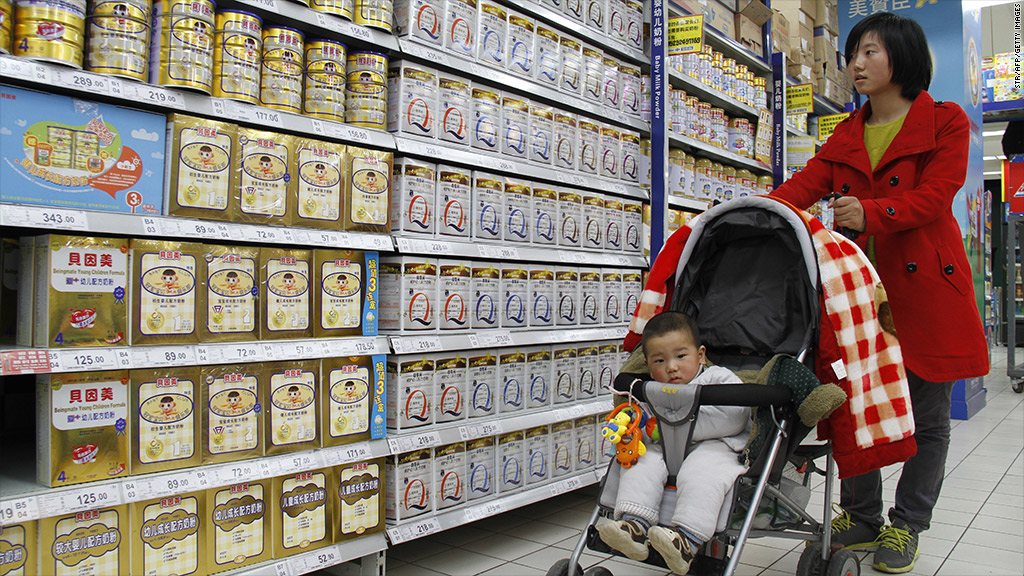
Chinese families are scouring the globe for powdered baby milk, creating shortages as far afield as the U.K. after a series of food scares damaged confidence in local supplies.
Major supermarkets in the U.K. including market leaders Tesco (TESO)and Sainsbury's have begun restricting the purchase of baby milk in an effort to prevent private exports to China.
A sign in a supermarket in central London read: "We ask that customers do not buy more than 2 units of infant formula powder... This is so that we can protect availability and ensure that as many customers as possible can buy these products."
China's demand for foreign-produced formula has been growing ever since 2008 when melamine-tainted baby milk led to the death of six children and caused hundreds of thousands of other children to fall ill.
Related: Why I'm leaving China - opinion
Dairy producer Danone says it has responded to growing demand by increasing its baby milk production in the U.K. and China.
"We are monitoring demand on a daily basis and responding swiftly where needed," Danone said in a statement.
Nestlé UK said it is not experiencing heightened demand for powdered infant milk, though it acknowledged that UK stores were rationing sales of its products.
"We do not have - and do not anticipate - any stock issues for powdered infant milks," the company said.
The rationing in U.K. stores follow shortages reported earlier this year in some Australian shops. Customers have been buying formula in bulk and either sending it to their family and friends in China, or selling it online for a profit.
Related: China trouble deepens for Yum Brands
Hong Kong has introduced baby milk restrictions at its border: travellers cannot leave with more than more than 4 pounds of formula. Several people were arrested last month for smuggling more than their alloted quantity.
"China's fast-growing middle class is increasingly concerned about dangerous consumer products," wrote Pew Research Center's Richard Wike in a recent article for CNN.com.
"In recent years, there have been scandals over tainted chicken, contaminated baby formula, and toxic fruit, to name just a few examples. In 2008, only 12 percent said food safety was a very big problem, but by 2012 that proportion more than tripled, to 41 percent," he said.
--CNN's Isa Soares contributed to this article

